Categories
- Knowledge and help (85)
- Blog (178)
- Oberon (11)
- bioplasm nls (14)
- Diacom nls (20)
- Metatron Hunter 4025 NLS review (41)
- Metatron Hunter Manual (7)
Get our comprehensive beginner’s guide with fundamental concepts and practical examples.
Online courses offer structured learning paths with expert instruction, making them ideal for mastering the complex concepts behind Non Linear Diagnostic System technology. Here are the best options available in 2024:
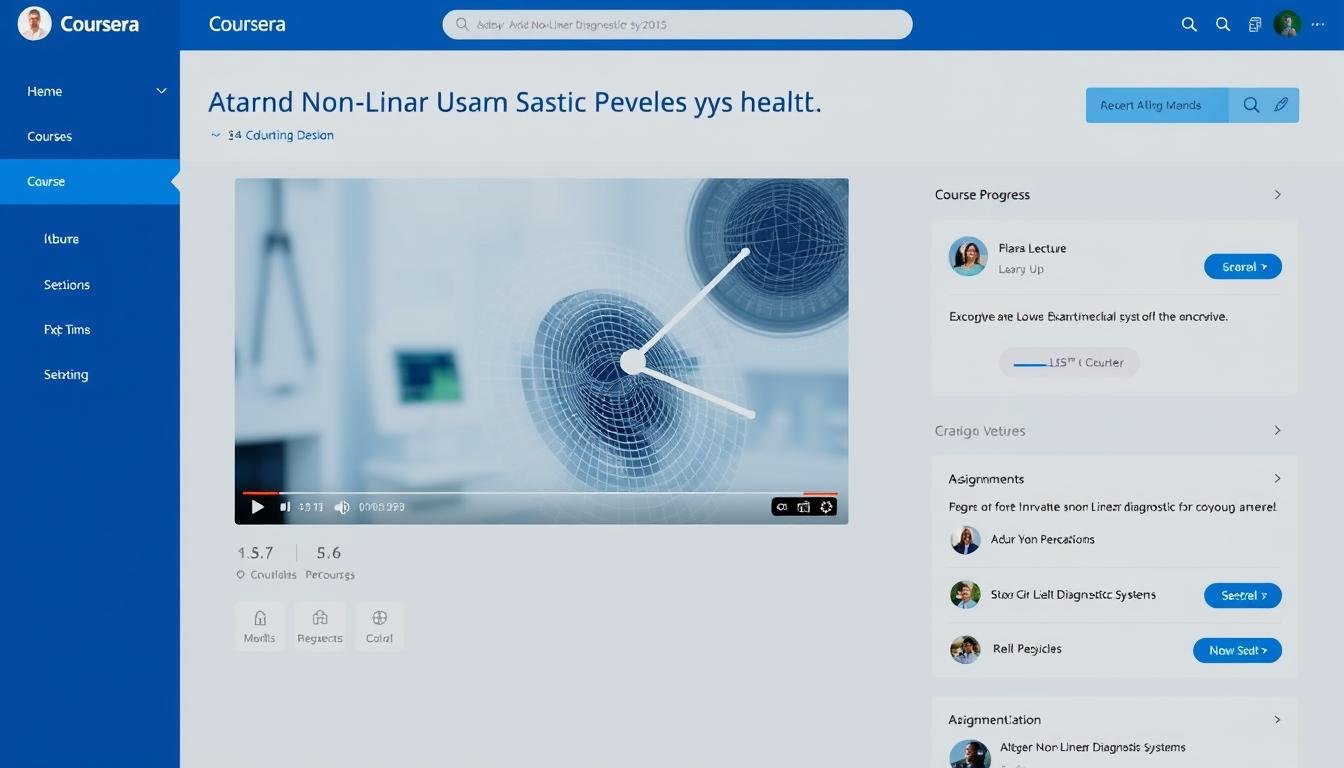
This comprehensive course by Stanford Medical School covers the theoretical foundations and practical applications of Non Linear Diagnostic System technology. The 8-week program includes hands-on projects with real medical data.
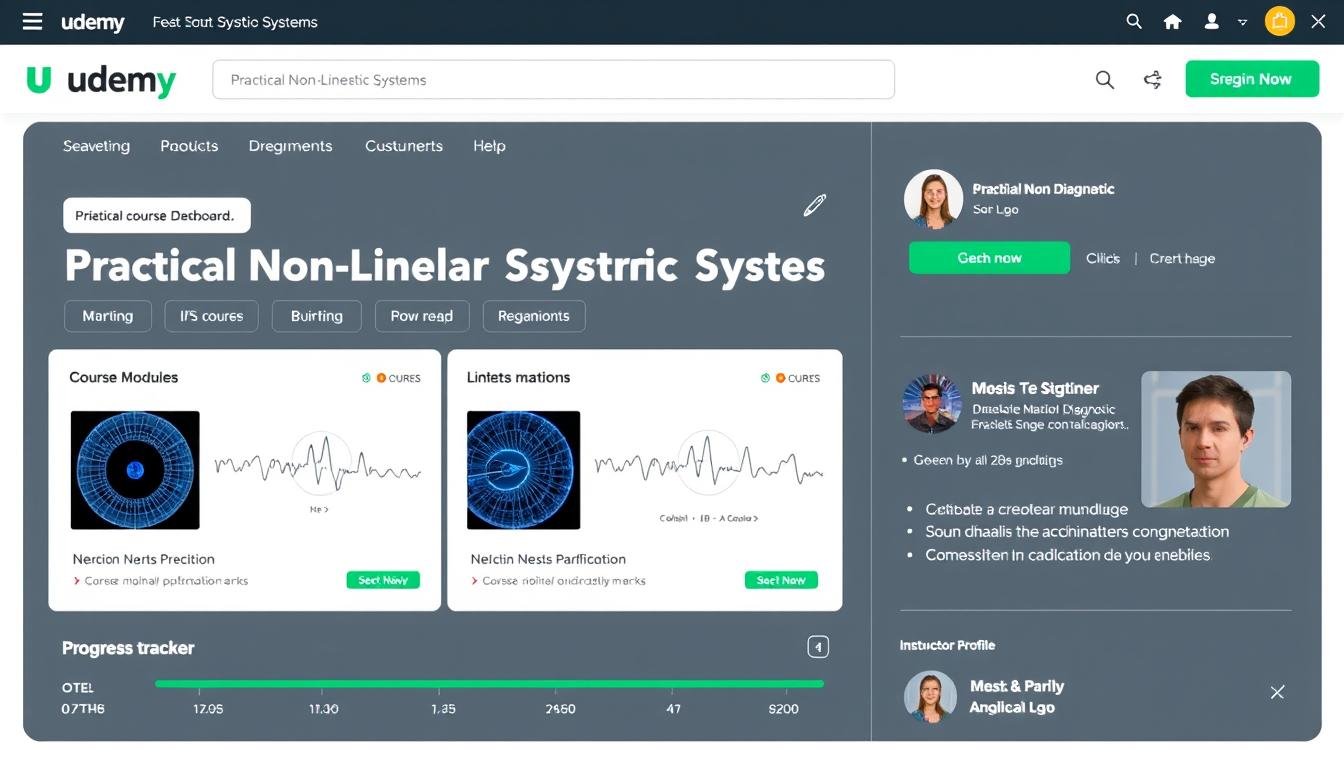
This hands-on course focuses on the practical implementation of non-linear diagnostic technologies in clinical settings. Ideal for healthcare professionals looking to apply these systems in their practice.
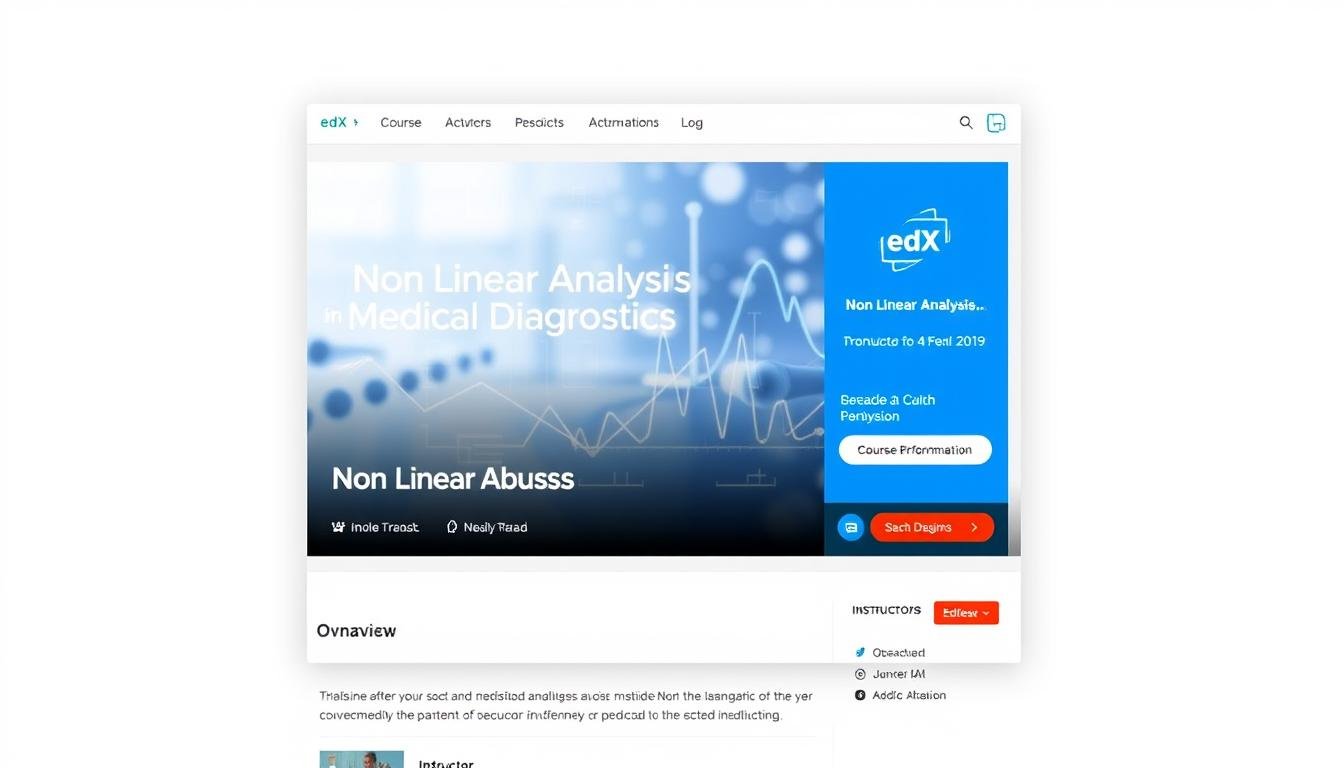
This MIT-developed course explores the mathematical foundations of Non Linear Diagnostic System technology with a focus on algorithm development and data interpretation.
Take our quick assessment to get a personalized learning path recommendation based on your background and goals.
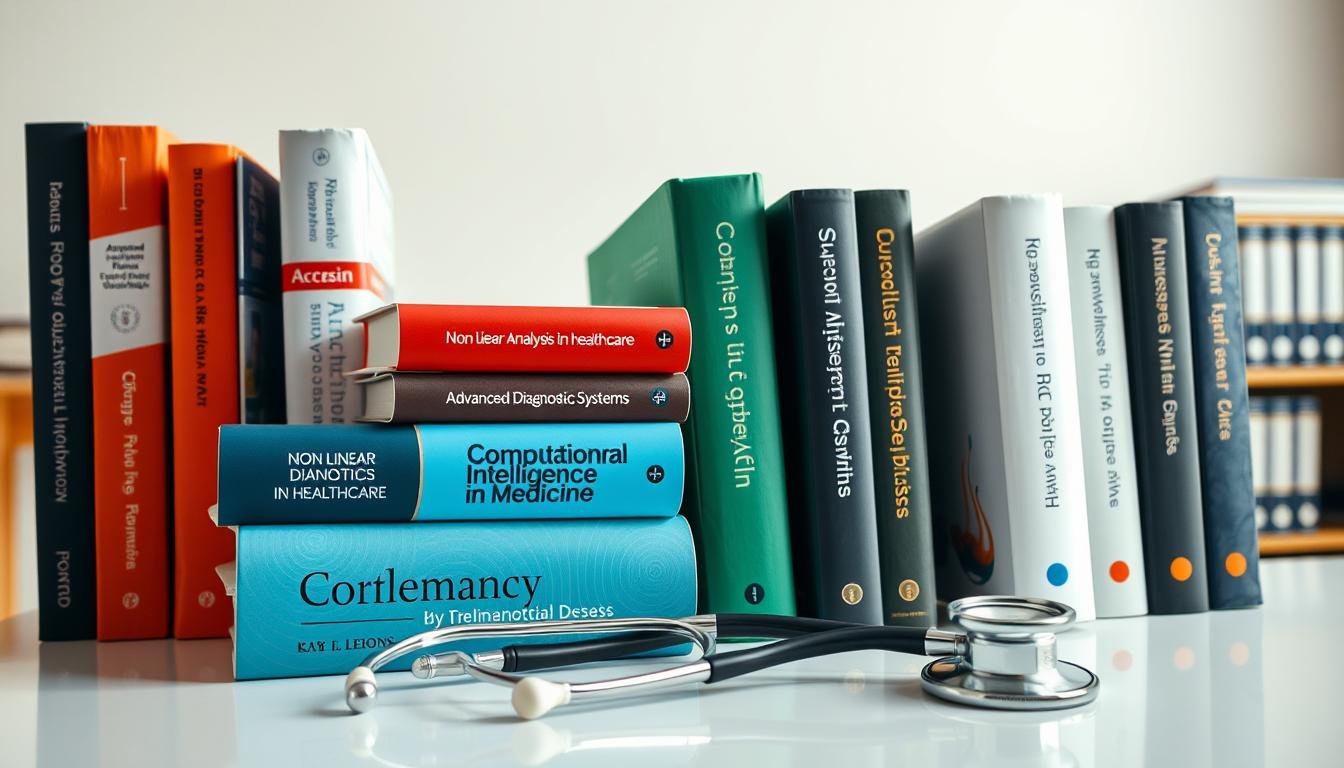
Books provide in-depth knowledge and serve as valuable reference materials for understanding Non Linear Diagnostic System concepts. Here are the most highly recommended titles for 2024:
| Title | Author(s) | Focus Area | Best For | Publication Year |
| Nonlinear Systems in Healthcare: Theory and Applications | Richard L. Armentano, Parag Chatterjee | Theoretical foundations with clinical applications | Healthcare researchers, Medical technologists | 2023 |
| Practical Guide to Non Linear Diagnostic System Implementation | Elena Mikhailova, James Chen | System implementation and clinical integration | Clinical engineers, Healthcare IT specialists | 2022 |
| Mathematical Foundations of Non-Linear Diagnostics | David Thompson, Sarah Williams | Mathematical theory and algorithm development | Biomedical engineers, Data scientists | 2021 |
| Non-Linear Analysis in Preventive Medicine | Maria Rodriguez, Thomas Lee | Early disease detection applications | Preventive medicine specialists, General practitioners | 2024 |
| The Future of Diagnostics: Non Linear Diagnostic System Approaches | Robert Johnson, Aisha Patel | Emerging technologies and future trends | Medical futurists, Healthcare innovators | 2023 |
When building your knowledge base through books, ensure your collection covers these essential aspects of Non Linear Diagnostic System technology:
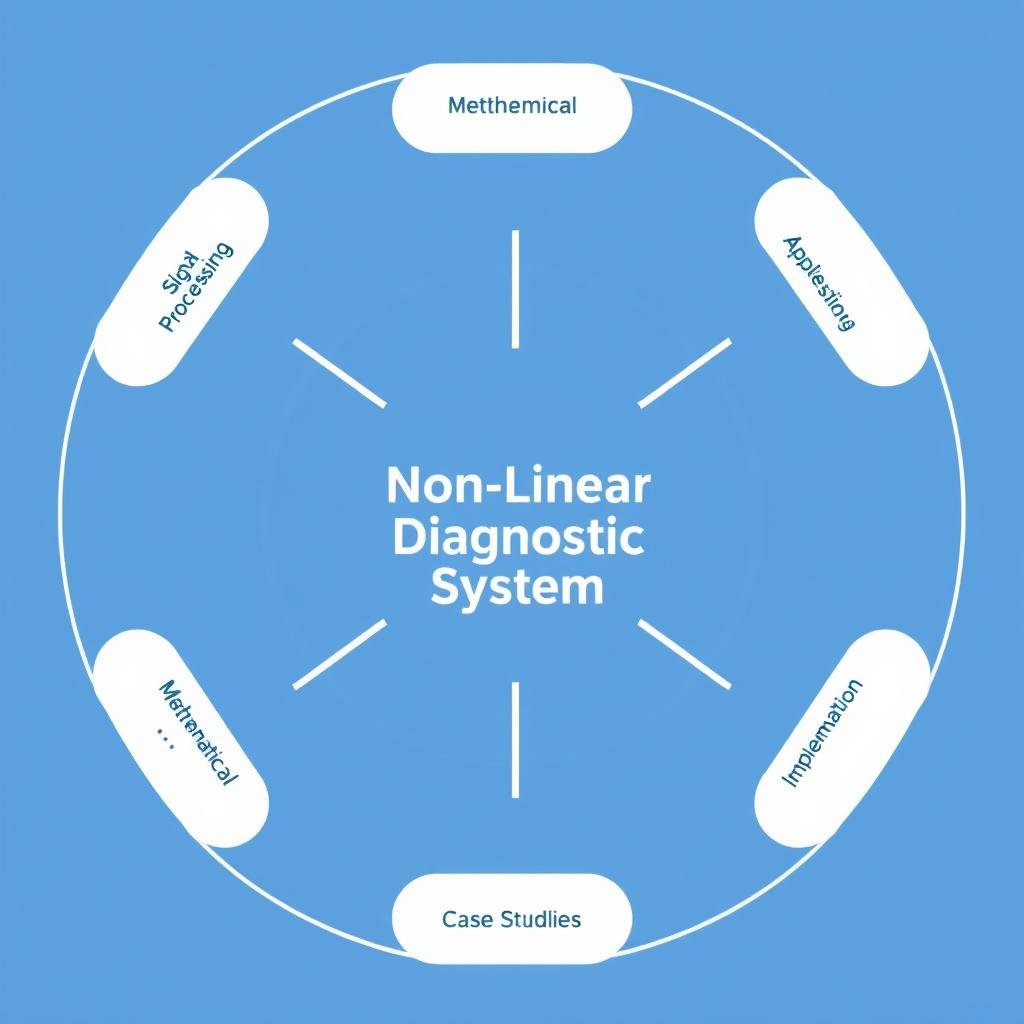
Pro Tip: For beginners, we recommend starting with “Nonlinear Systems in Healthcare: Theory and Applications” as it provides a comprehensive overview before diving into more specialized texts.
Academic research papers provide the most current insights into Non Linear Diagnostic System advancements. Here are key papers that have significantly contributed to the field:
By Chatterjee P., Cymberknop L.J., Armentano R.L. (2019)
This foundational paper explores how Non Linear Diagnostic System approaches can be applied to predict diseases using advanced computational intelligence methods.
Key topics: Machine learning integration, predictive analytics, chronic disease applications
By Johnson R., Patel S., Williams T. (2022)
This paper demonstrates how Non Linear Diagnostic System technology outperforms traditional linear methods in detecting early signs of cardiovascular disease.
Key topics: Cardiovascular biomarkers, comparative analysis, clinical validation
By Mikhailova E., Chen J., Novak P. (2023)
This cutting-edge research explores how torsion field analysis enhances the diagnostic capabilities of non-linear systems for early disease detection.
Key topics: Torsion fields, quantum diagnostics, subcortical brain analysis
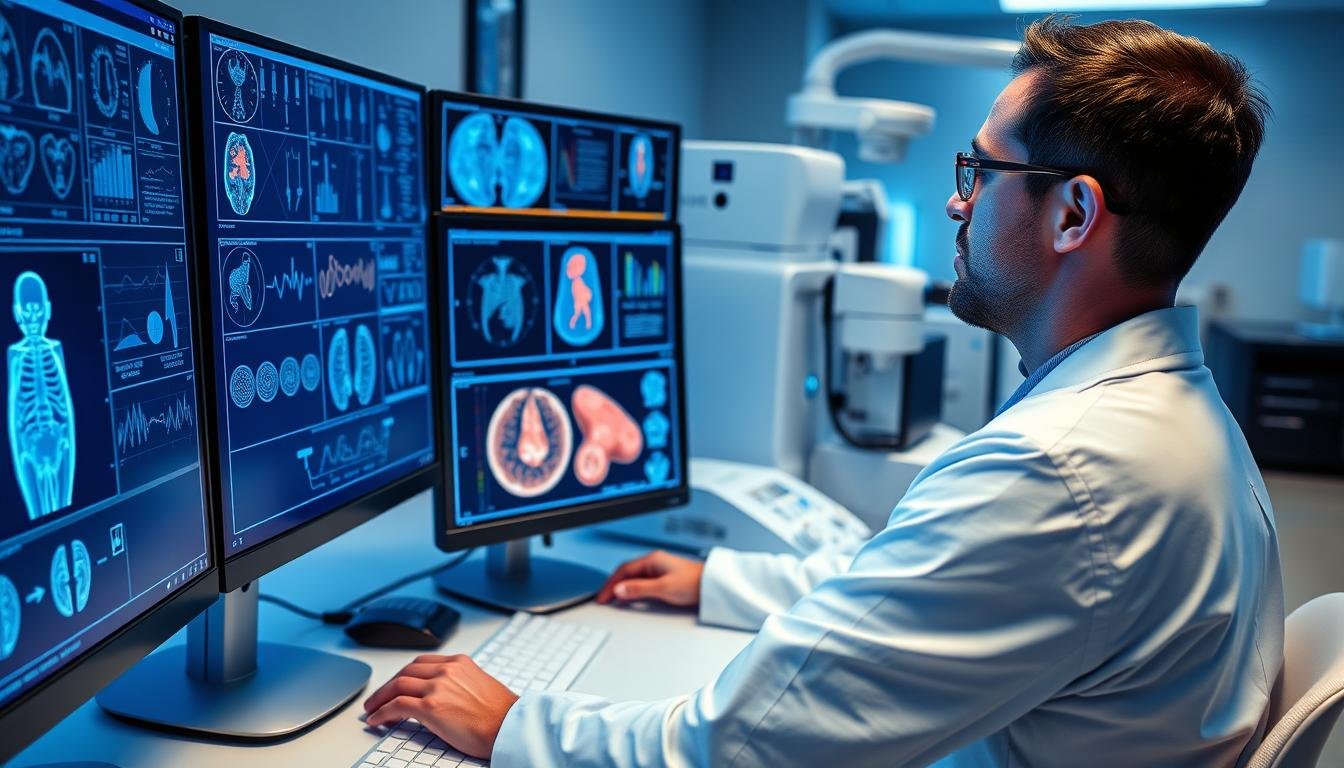
For those pursuing advanced knowledge in Non Linear Diagnostic System technology, maintaining access to the latest research is essential. Consider subscribing to journals like IEEE Transactions on Biomedical Engineering, Journal of Medical Systems, and Computers in Biology and Medicine, which regularly publish relevant studies.
Join our research digest to receive monthly summaries of the most important Non Linear Diagnostic System studies and breakthroughs.
Hands-on experience with software tools is crucial for mastering Non Linear Diagnostic System concepts. These tools allow you to practice data analysis, algorithm development, and system implementation:
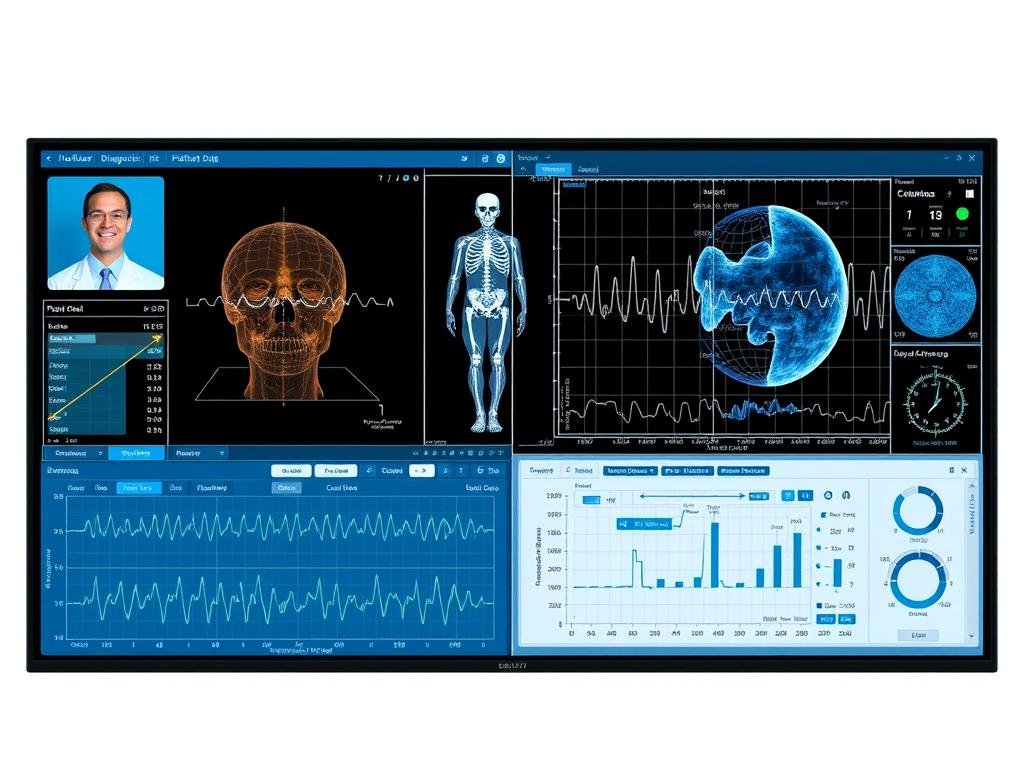
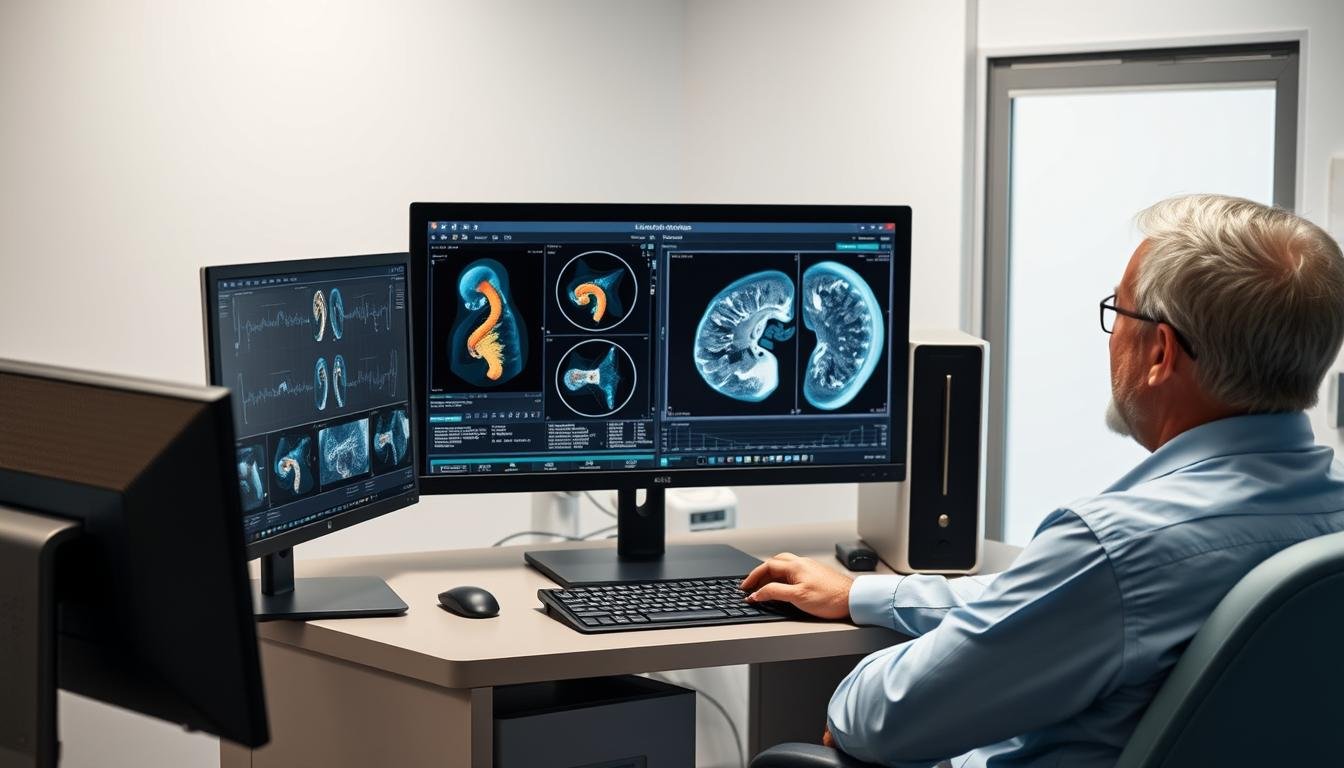
Getting Started with Software Tools: Many of these tools offer free trial versions or academic licenses. We recommend beginning with PyNLD as it has excellent documentation and a supportive community for beginners learning Non Linear Diagnostic System concepts.
Professional certifications validate your expertise in Non Linear Diagnostic System technology and enhance your credibility in the field. Here are the leading certification programs available in 2024:
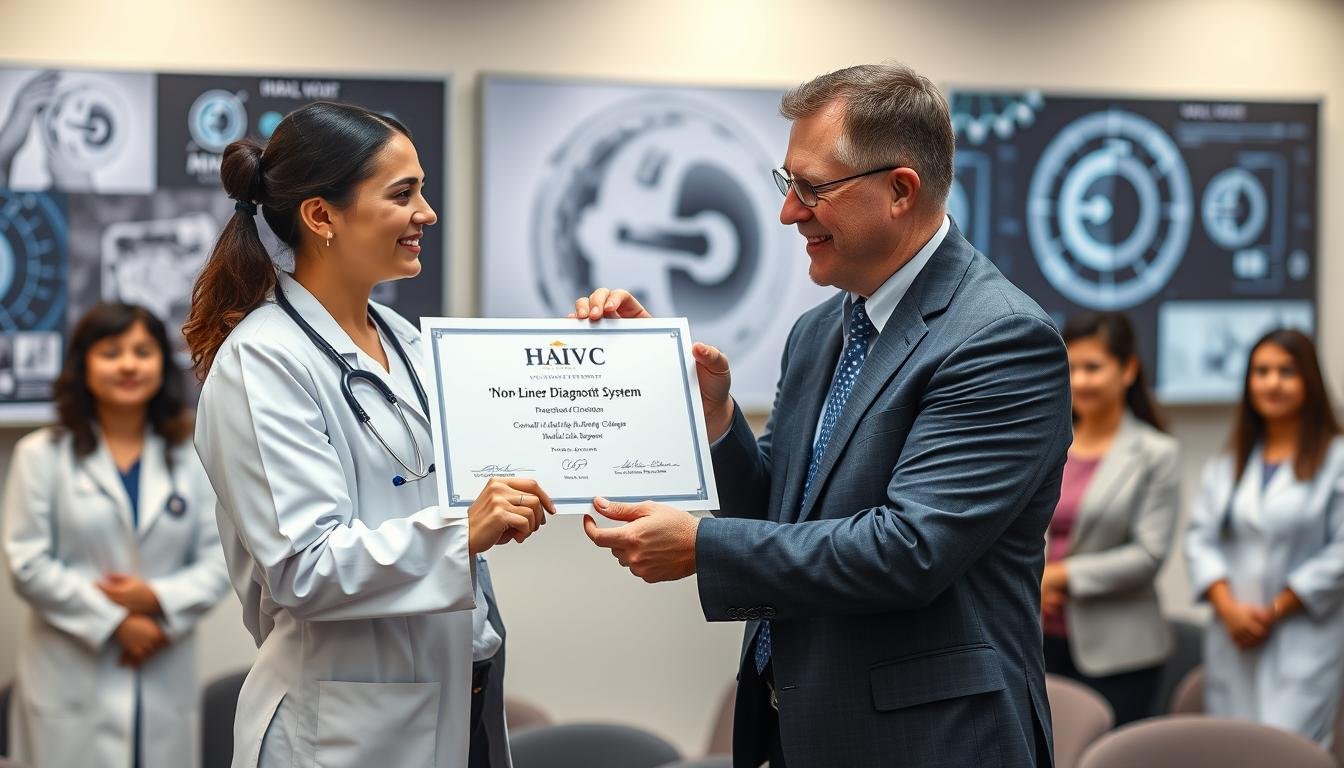
This comprehensive certification program covers all aspects of Non Linear Diagnostic System technology, from theoretical foundations to clinical applications.
Provider: International Association for Medical Diagnostic Systems
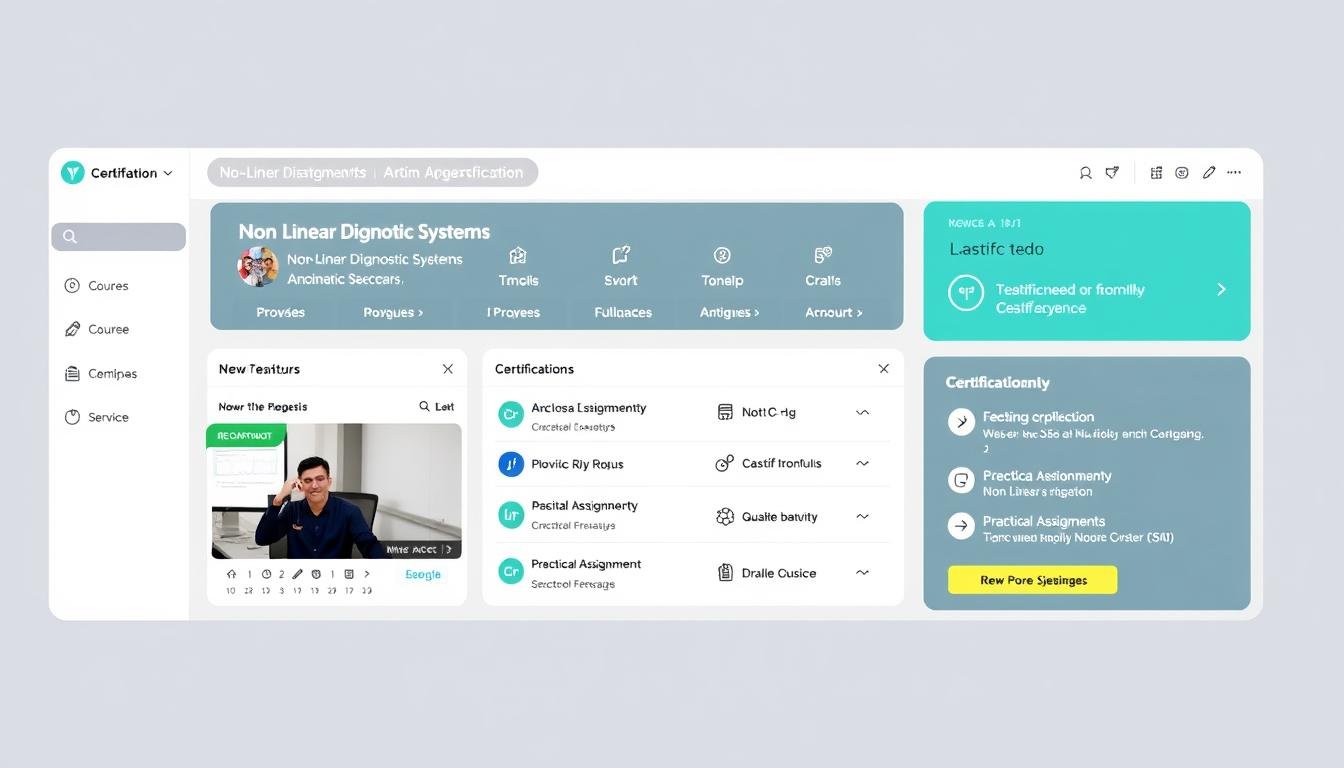
This technical certification focuses on the implementation, calibration, and maintenance of non-linear diagnostic equipment in clinical settings.
Provider: Medical Technology Certification Board
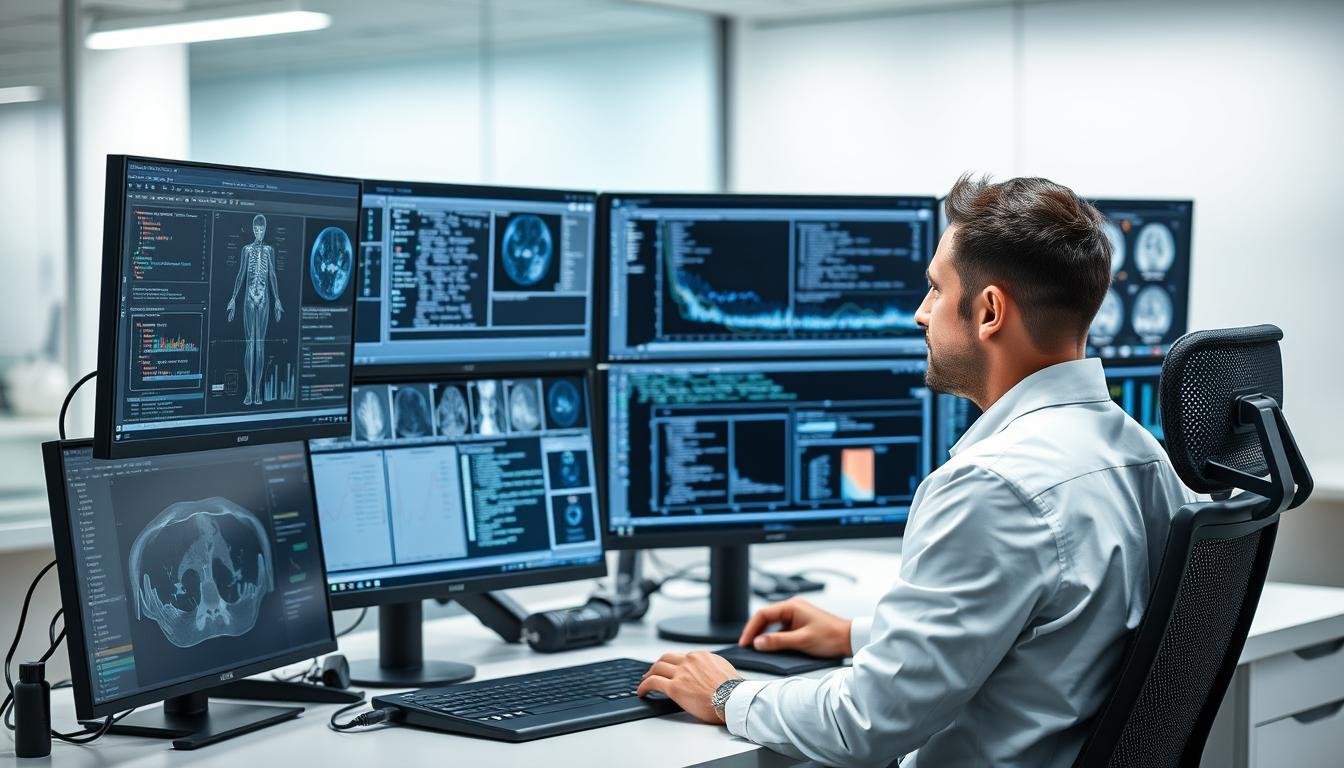
This specialized certification prepares professionals to interpret and analyze the complex data generated by Non Linear Diagnostic System technologies.
Provider: Healthcare Data Science Institute
Not sure which certification is right for you? Take our assessment to get a personalized recommendation based on your background and career goals.
Connecting with other professionals and learners in the field can significantly enhance your understanding of Non Linear Diagnostic System technology. These online communities offer valuable support, knowledge sharing, and networking opportunities:
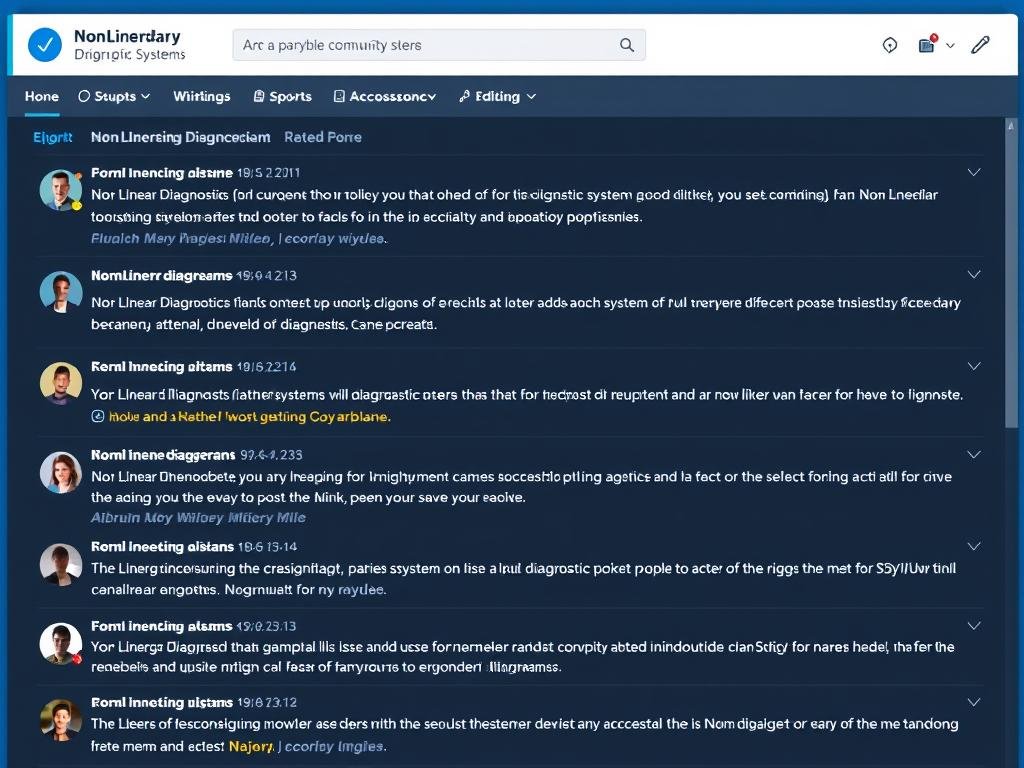
Community Tip: When joining these communities, start by introducing yourself and your specific interest in Non Linear Diagnostic System technology. This helps you connect with members who share similar goals and can guide your learning journey.
| Event Name | Location | Typical Date | Focus Areas |
| International Conference on Non-Linear Medical Systems | Rotating (2024: Boston, USA) | May | Research presentations, new technologies, clinical trials |
| European Symposium on Advanced Diagnostics | Berlin, Germany | September | European healthcare integration, regulatory standards |
| Asia-Pacific Non Linear Diagnostic System Summit | Singapore | November | Emerging markets, technology adaptation, regional applications |
| Medical AI and Non-Linear Analysis Workshop | Virtual | February | AI integration, algorithm development, data science |
Developing expertise in Non Linear Diagnostic System technology requires a structured approach. Here’s a recommended learning path based on your starting point:
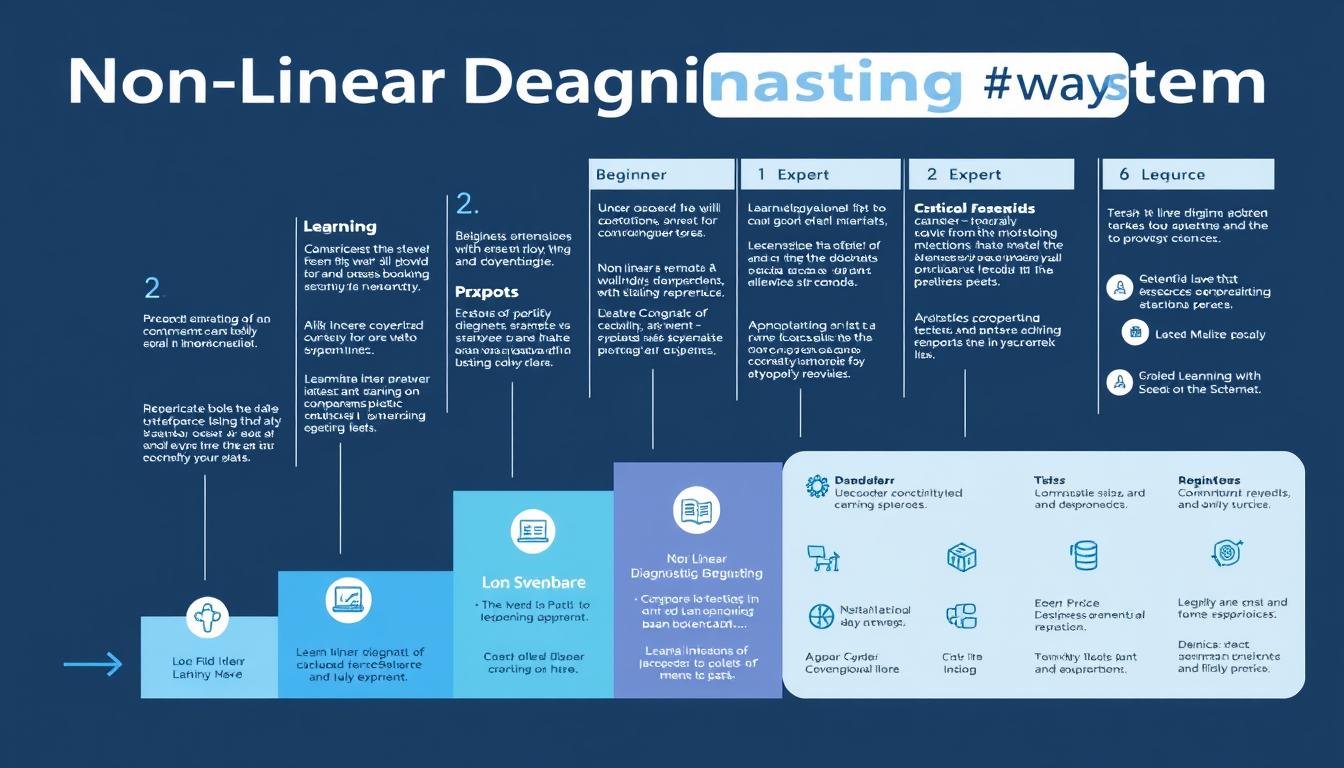
Important Note: Your background will significantly impact your learning timeline. Those with prior experience in medical technology, data science, or signal processing may progress more quickly, while those from non-technical backgrounds may need additional time for foundational concepts.
Different learning formats offer unique advantages for mastering Non Linear Diagnostic System concepts. Here’s a comparison to help you choose the right approach for your needs:
| Learning Format | Time Investment | Cost Range | Best For | Limitations |
| Online Courses | 4-12 weeks | $0-500 | Structured learning with flexibility | Limited direct feedback, variable quality |
| Books & Research Papers | Self-paced | $50-300 | Deep theoretical understanding | No hands-on practice, can be outdated |
| Certification Programs | 3-6 months | $1,000-3,500 | Career advancement, credibility | Higher cost, fixed schedules |
| Workshops & Seminars | 1-5 days | $200-1,500 | Networking, focused learning | Limited depth, infrequent availability |
| Hands-on Software Practice | Self-paced | $0-500 | Practical skills development | May lack theoretical foundation |
| Academic Degree Programs | 1-2 years | $10,000-50,000 | Comprehensive expertise, research | High commitment, significant cost |
“The most effective learning approach for Non Linear Diagnostic System technology combines theoretical study with hands-on practice. No single format provides complete mastery—the key is integrating multiple learning methods.”
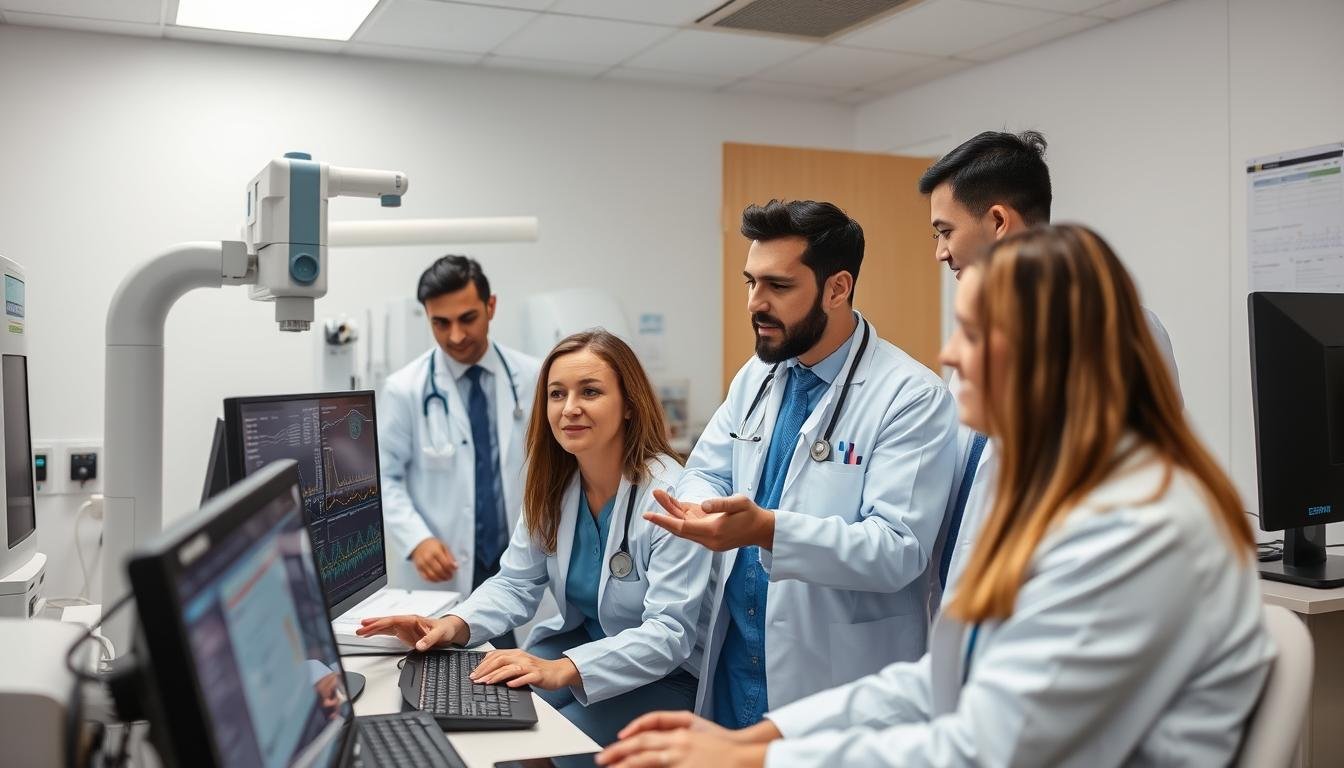
A basic understanding of mathematics (particularly calculus and statistics), some programming experience, and familiarity with general medical concepts are helpful. However, many introductory courses are designed to accommodate learners from diverse backgrounds. Those with experience in signal processing, data analysis, or healthcare technology will have an advantage but are not prerequisites for beginning your learning journey.
For most learners, achieving practical proficiency takes 6-12 months of dedicated study and practice. This timeline assumes you’re dedicating 5-10 hours weekly to learning activities. Those pursuing formal certification or academic credentials may take 1-2 years to complete their programs. The learning curve depends significantly on your background, learning approach, and specific area of focus within the field.
Yes, numerous free resources are available. These include introductory courses on platforms like Coursera and edX (audit option), open-access research papers, YouTube tutorials, and community forums. While these resources can provide a solid foundation, more comprehensive or specialized knowledge typically requires investment in paid courses, books, or certification programs. Many software tools also offer free trial versions or academic licenses for learning purposes.
Professionals with this expertise are sought after in various sectors, including:
The growing integration of AI and advanced diagnostics is expanding career opportunities in this field.
To stay current with this rapidly evolving field:
Our experts can provide personalized guidance based on your background and goals.
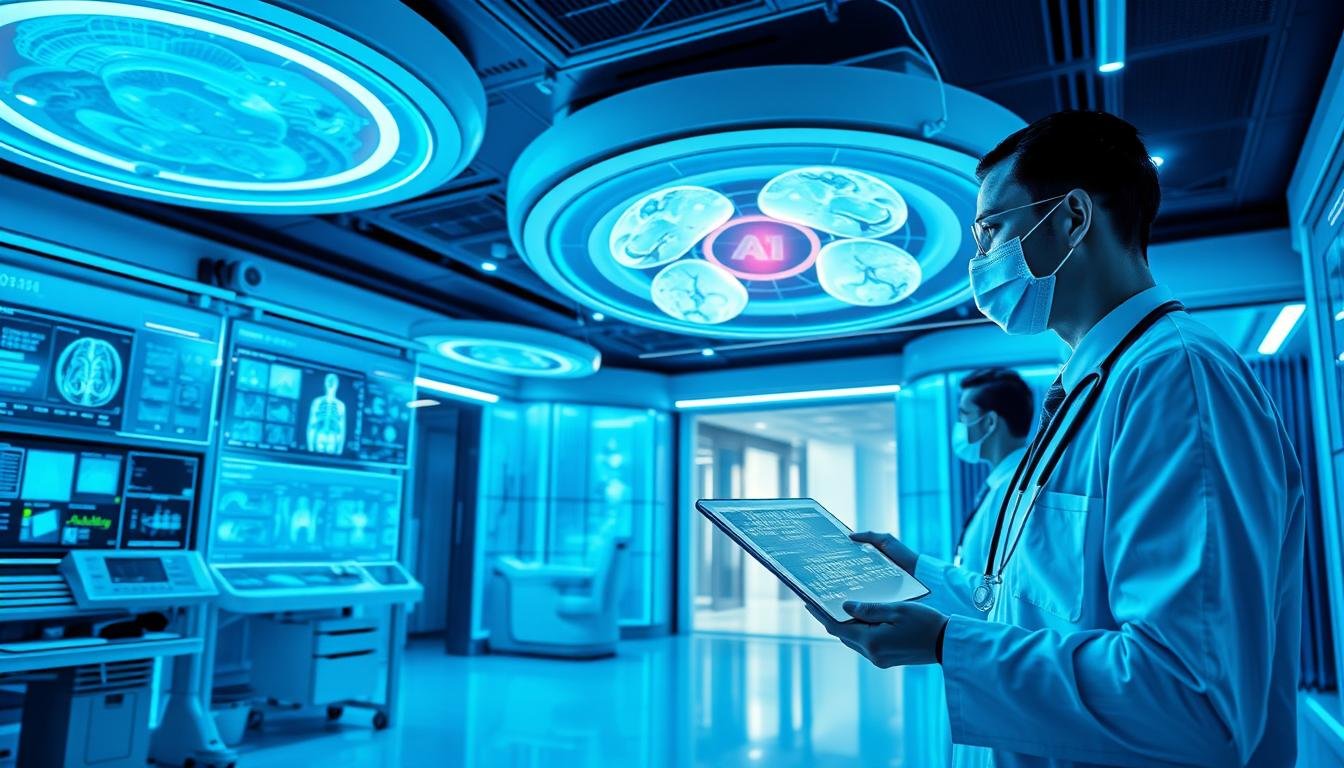
The field of Non Linear Diagnostic System technology represents one of the most promising frontiers in modern healthcare. As these systems continue to evolve, they offer unprecedented capabilities for early disease detection, personalized treatment planning, and improved patient outcomes. By following the learning resources and pathways outlined in this guide, you’re well-positioned to develop valuable expertise in this growing field.
Remember that mastering Non Linear Diagnostic System concepts requires a multifaceted approach—combining theoretical knowledge with practical application and staying connected to the professional community. Whether your interest is clinical implementation, research, or technology development, the resources in this guide provide a solid foundation for your learning journey.
As healthcare continues its digital transformation, professionals with expertise in advanced diagnostic technologies will play an increasingly vital role in shaping the future of medicine. Your investment in learning about Non Linear Diagnostic System technology today positions you at the forefront of this exciting evolution in healthcare.
Download our comprehensive resource guide with links to all the learning materials mentioned in this article, plus bonus resources and a personalized learning plan template.
